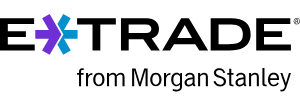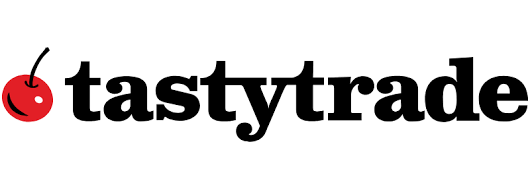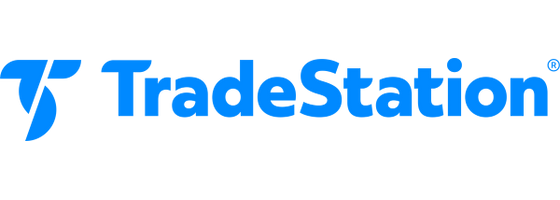- Paper trading is available
- Strong educational content for beginners
- Risk and rewards analyses
7 Best Options Trading Platforms for February 2025

Our evaluations and opinions are not influenced by our advertising relationships, but we may earn a commission from our partners’ links. This content is created by TIME Stamped, under TIME’s direction and produced in accordance with TIME’s editorial guidelines and overseen by TIME’s editorial staff. Learn more about it.
Many online brokerages support options trading, but the best options trading platform for one trader may not be the best for another. We evaluated some of the most popular online brokers for a wide variety of traders—including beginner to advanced, those looking for low costs, and those wanting to trade options alongside their other investments.
Read on for our recommendations, as well as how to choose the platform that’s best suited for you.
E*Trade from Morgan Stanley offers a wide range of guidance and educational content for new investors, so it’s no surprise it has articles on everything from getting started with options trading to understanding “options Greeks,” statistical values that measure various types of risk.
E*Trade has an impressive schedule of live and on-demand educational webinars, including the “Options Summit,” designed for traders of all levels. Looking for the basics? E*Trade has an online boot camp that teaches you the ins and outs of options trading—everything from an options intro to specific strategies.
ETrade also offers paper trading, so you can practice your trades before executing. Once a beginner has the basics down, they can use ETrade’s various tools, including risk and rewards profile analysis and a way to visualize your portfolio’s risk in the event of significant market moves, including potential profits and losses.
The options contract fee is $0 stock & ETF trades; $0.65/contract options trades; $1.50/contract futures trades; 6,500+ NTF mutual funds and there’s no cap, making it more expensive than other platforms, such as Tastytrade, if you’re trading high volumes. That said, if you execute more than 30 stock, ETF, and options trades per quarter, that fee drops to $0.50.
Interactive Brokers allows you to trade a wide range of securities, including stocks, bonds, exchange-traded funds (ETFs), futures, forex, options, and more. While options trading on this platform isn’t commission-free (as it is for stocks and ETFs), the fees are reasonable: $0.15 to $0.65, depending on whether you’re using IBKR Lite or IBKR Pro and on your monthly trading volume. To qualify for the $0.15 fee, you must trade at least 100,000 monthly contracts.
Interactive Brokers stands out for its impressive suite of trading tools and research. And the platform doesn’t leave it up to you to figure out. The website provides thorough instructions for its offerings—including how to use its options-writing tool; its “Rollover Options” feature; and its “Interactive Brokers Exit Strategy,” which helps you determine when and where to place exit orders.
In addition to trading via the desktop and web, options traders have access to Interactive Brokers’ wide array of mobile trading tools. While less experienced traders may benefit from IKBR’s education sources, advanced traders can use sophisticated tools and research to become better traders.
If you’re an active options trader, you need a platform with trading fees that won’t eat away at your returns. Enter Tastytrade, with its competitive commissions and robust tools for options traders who move quickly.
Tastytrade comes with a fee of $1 per stock option contract to open and $0 to close. But it has capped fees: You won’t pay more than $10 per leg, no matter your trade size. That’s an important distinction from some other popular trading platforms if you’re buying and selling options contracts regularly. For example, opening and closing 50 put/call options (100 options contracts total) would cost just $20 at Tastytrade compared to $65 at Interactive Brokers or E*Trade.
Tastytrade emphasizes speed, making it simple for traders to adjust their portfolios with just a few clicks. The platform also offers tools active traders will love, such as the quick roll feature, which lets you easily roll an options position into the next expiration cycle, and the ability to cancel, replace, duplicate, and revert working orders that haven’t been filled yet with just a right click.
Fidelity has become known as a trusted brand for investors looking to trade and invest for the long term. It provides a large suite of diversified mutual funds. But investors will find Fidelity’s options-trading features impressive as well.
Fidelity doesn’t charge commission fees on options trades, and its $0.65-per-contract fee for online trades aligns with many others on this list. Advanced traders will find useful in-depth tools via Active Trader Pro, which enables traders to monitor market trends and improve their options trading strategies. Newer options traders will find tons of educational material, including guides on conducting research and executing trades.
Fidelity offers stronger customer support than some competitors, partly due to its large footprint. Its virtual assistant and phone support are available 24/7, and its online chat function is available daily, including on weekends. With over 200 branches across the country, you may be able to chat with an advisor in person, depending on your location.
New customers earn 5.25% APY for a limited time. No minimum balance & cancel anytime. Terms apply.
*limited time offer and subscription fee applies
Robinhood has made its name from commission-free trading, and those low costs extend to its options trading. The platform has no per-contract fees. However, as with many platforms, you may face other fees, such as wire-transfer fees. Gold, Robinhood’s optional premium subscription, is also $5 monthly.
While Robinhood’s popularity has grown rapidly, it’s not suitable for everyone. Investors and regulators have criticized the platform, saying it encourages reckless investing, while marketing itself to beginners. Robinhood has also received backlash for its system outages and its means of making money via “payment for order flow,” which diminishes some of the benefits of its “free trading.”
Still, if you’re looking for low costs, you’ll want to consider Robinhood. Keep in mind that its platform doesn’t support bond or mutual-fund trading, making it difficult to achieve a diversified portfolio.
Charles Schwab has become a household name in the investing world for its wide array of investment offerings, which include stocks, bonds, ETFs, and options. Schwab platform makes it easy to save for retirement, automate your investments, seek advice from professionals, bank, and borrow. It’s the ideal spot if you’re looking to trade options in the same place where you manage your other finances.
Schwab offers competitive costs for options trading: zero base commissions and a $0.65 per contract fee for online trades (a $25 service charge applies for broker-assisted trades). Pair that with Schwab’s generally low account fees, and it’s an ideal place to park your cash, invest, and trade options.
Charles Schwab has more than 300 branches, 24/7 live chat support, and phone support, so you can get the support you need.
If you want to improve your options-trading strategies, TradeStation has the tools to help you do it. While the platform is geared towards more advanced traders, it offers an impressive assortment of educational content and research.
There are no commission fees for U.S. residents, and there’s a relatively low $0.60 per contract fee. Active traders shouldn’t have to worry about speed: TradeStation reported an average execution speed of 0.305 seconds on all covered market orders of 1 to 50 contracts in 2023.
In addition to its sophisticated desktop, web, and mobile trading platforms, TradeStation offers a master class with live webinars to help investors understand its advanced trading and analytical tools. If you can’t wait for a class before starting, there are also video guides. In addition, TradeStation offers free in-person and online events with industry experts. This includes a weekly presentation on market trends with the firm’s global head of market strategy.
To choose our recommendations, we reviewed some of the most popular and largest online brokers and analyzed them specifically based on their options offerings. We considered costs, including commissions, per-contract fees, and other fees users may find on the platform. We also considered account minimums, customer service, trading tools and analysis, educational content, and more.
Before choosing an options-trading platform, consider your goals. Are you an advanced trader looking to actively trade options on a day-to-day basis? Are you a stock investor who is looking to level up? The right platform for one person may not be the best for another.
Here are some factors other to consider:
Nowadays, many options traders use online brokers because of their ease of use and the fast, hands-on approach necessary for trading options.
However, if you don’t want to place your own trades online, you can execute broker-assisted trades with many online brokerage firms. Just remember there will be a fee.
You can also speak to a financial advisor about options trading. If it’s deemed an appropriate strategy for your portfolio, they may be able to help you choose strategies and execute trades (at a cost).
Before you begin trading options, it’s important to understand what exactly it entails.
Options trading involves buying and selling options contracts, which give the buyer the right—but not the obligation—to trade an underlying asset. Those underlying assets can include stocks, bonds, and ETFs.
Options contracts come with an expiration date and a strike price. If the price of the underlying asset hits the strike price by the expiration date, the options contract buyer can exercise the right to buy or sell the underlying asset for the price agreed upon in the contract.
Let’s say stock XYZ is trading for $5 but you think it will jump to $10. You can buy an options contract that says if the price of stock XYZ jumps to $10 in the next month, you have the right to buy the stock from the options seller for just $5 per share. You’ll have to pay the seller a premium, or the cost of the options contract, in exchange for that right.
Traders use options to hedge against risk in other areas of their portfolio, generate income, and speculate on short-term market moves. But this type of trading comes with risk. For example, if you were the seller in the aforementioned example, there is no cap on how high stock XYZ’s price could rise. Even if it jumped to $50 per share, you would have been obligated to sell the stock to the buyer for just $5, if that’s what you agreed upon in the options contract.
While your approach to options trading will depend on your goals and risk tolerance, here are some tips to help you improve your strategy:
Options trading can enable you to profit from volatility and generate additional income. But it can also come with risks.
If you trade options, it's crucial to pick the right trading platform for your goals and experience level. Review a platform’s costs, tools and features, educational content, and more before committing.
Most online brokers allow you to trade via the web, desktop, or mobile. But if you’re choosing between the web-based and desktop versions, consider whether you’re on a computer that you can download software on. If you can download software, you may want to opt for the desktop version, as it will be more powerful. But if you can't—say you’re using a work computer—the web-based version will make more sense.
Yes, you can switch platforms once you’ve started trading. But depending on the app, you may have to sell your securities or pay a transfer fee.
We selected E*Trade as the best options-trading app for beginners because of its in-depth educational content and paper trading feature.
Some of the platforms we included in our list include features that allow you to run risk/reward analyses, see what other options traders are buying and selling, and attend events and webinars on market trends to assess which trades make sense for you.
The information presented here is created by TIME Stamped and overseen by TIME editorial staff. To learn more, see our About Us page.










